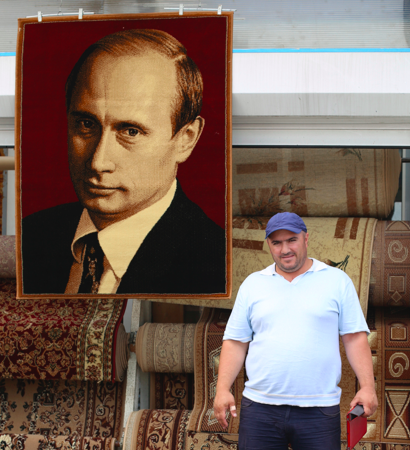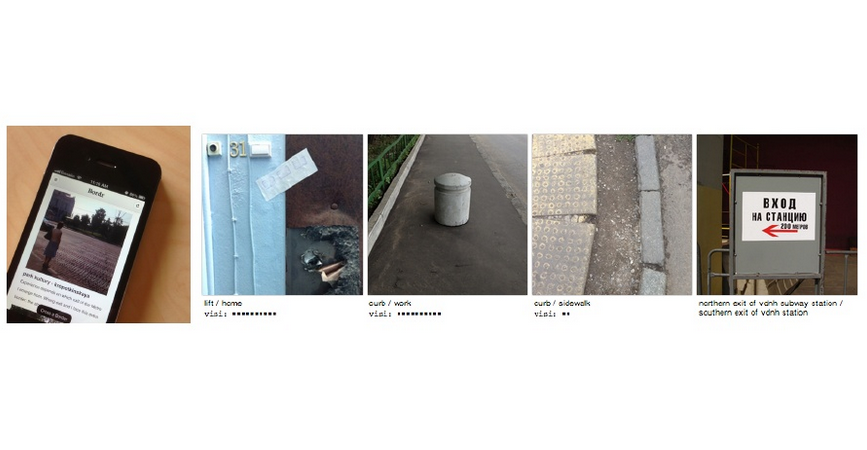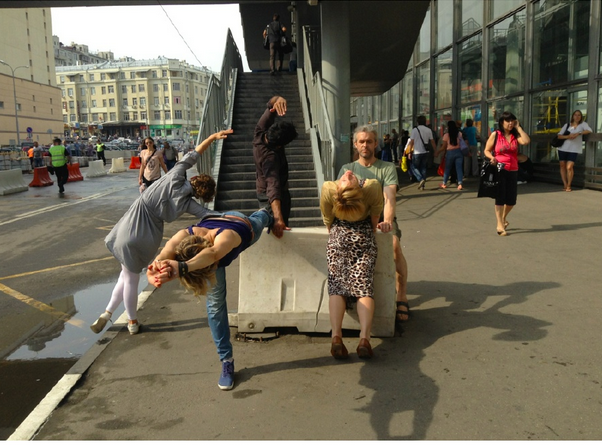- Workshop included: site visits and interviews with migrants operating businesses in a vibrant open air market on the edge of the city.
- Mapping of workshop participant’s personal perceptions of boundary conditions within the city.
- And considering methods of sharing these experiences through representation or intervention. Dancing with borders.
Short project description
Cities like Istanbul, Jerusalem, Berlin, San Isidro are known for their internal borders that divide peoples, states, economies. These are cities on the edge, visible intersections between worlds; however, all cities are border cities in that spatial divisions are produced through urban planning, city management, and cultural production.
Borders explored
A variety of social, economic, and political borders within the city of Moscow were investigated with an aim of designing interventions to reveal or transform them or the context of their construction. These borders included: political – economic border (the work visa process), cultural – social border (behavior norms in public space), social – infrastructural border (diversity at a peri-urban market), and infrastructural – ecological (a river in the city).
Method
Game design, net ethnography, participatory urban research (including the use of the Bordr iPhone app), and contemporary dance.
Purpose
Identify research methods and modes of representing borders within the city to increase awareness and support social change.
Audience
Designers, architects, urbanists, researchers, technologists, and performance artists.
Project Period
A 10 day workshop in July 2013
Location
Strelka Institute for Art, Architecture, and Design, Moscow
Project results
A performance documented by video, a website that includes process documentation, and a presentation of results.
Inspired by
The Bordr iPhone app and a variety of artist interventions documented on the project website.
Difficulties
We had a very small group of workshop participants in the beginning which meant we had to be very hands-on as project coordinators and explore different ways of promoting and transforming the workshop. We reformulated the workshop as a set of “research simulators” and thereby were able to increase participation by narrowing research to specific sites of investigation.
Credit
The workshop was organized with Nitin Sawhney and Christo de Klerk and Shriya Malhotra.
More
More details of the workshop at moscow.bordr.org.


